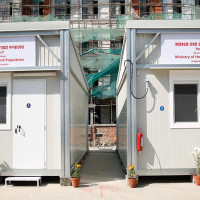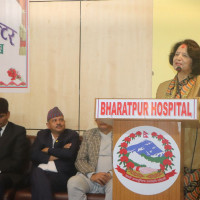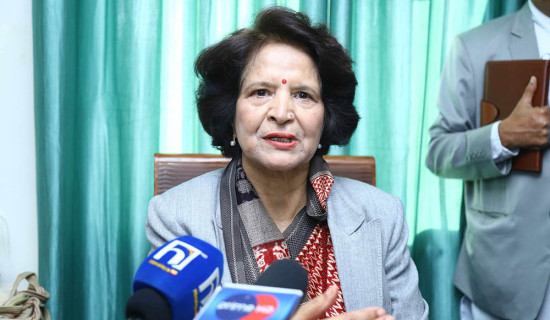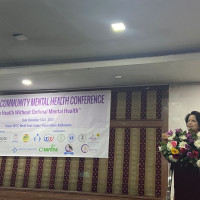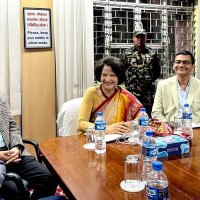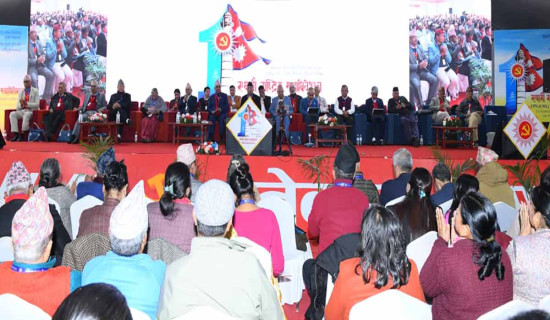- Sunday, 14 December 2025
Nepal sees over 800,000 premature births annually
BY A STAFF REPORTER,Kathmandu, Nov. 18: World Prematurity Day was celebrated across the world Thursday. The day is being celebrated across Nepal with the theme 'Embrace of Love: Best Care for Prematurely Born '.
This day is celebrated to raise awareness around the world about the challenges of premature birth and to honour premature babies and their families.
According to the World Health
Organization (WHO), the birth of a newborn before 37 weeks of pregnancy is called premature birth or 'preterm birth'.
Globally, about one million children die each year due to complications caused by premature birth.
Complications caused by premature birth are the leading causes of death in children under 5 years of age.
With proper treatment and care,
75 per cent of these deaths can be prevented.
Issuing a press release, the Ministry of Health and Population (MoHP) informed that the survival rate of premature baby is lower in low-income countries like Nepal compared to high-income countries.
In Nepal alone, 810,000 babies are born prematurely every year, out of which 4,300 premature babies
die before the age of five due to various reasons.
To reduce this, pregnancy-related causes should be eliminated. According to the MoHP, pregnant women of less than 20 years of age and more than 35 years of age are likely to have premature baby.
As per the MoHP, preventing the lack of micronutrients like iron, calcium, preventing the infection of lice, not smoking, drinking alcohol,
taking drugs and preventing
pregnant women from being burdened with work can help reduce the rate of premature birth.
Emphasis should be laid on maternity and post-delivery services by skilled or trained health workers for the management of premature newborns, said the MoHP, adding that breast-feeding should be done as soon as the birth of a baby.
The guidelines published by the WHO advised that skin-to-skin contact with a caregiver, known as kangaroo mother care – should start immediately after birth, without any initial period in an incubator.
This marks a significant change from earlier guidance and common clinical practice, reflecting the immense health benefits of ensuring caregivers and their preterm babies can stay close, without being separated, after birth, according to the WHO.
The MoHP has appealed to all stakeholders, the press and health workers to spread awareness about complications related to premature births and the risk of death.




